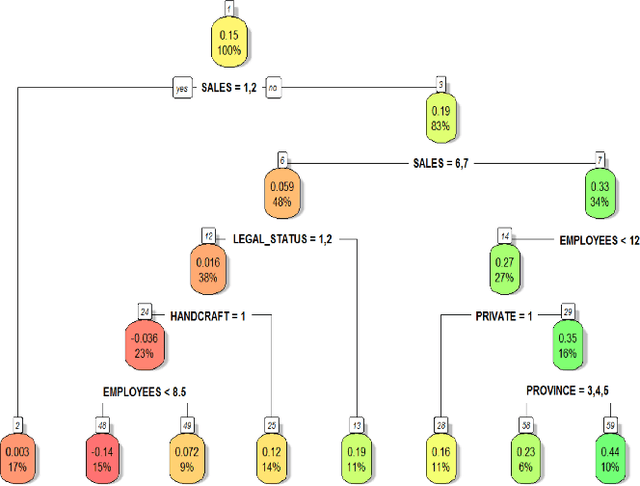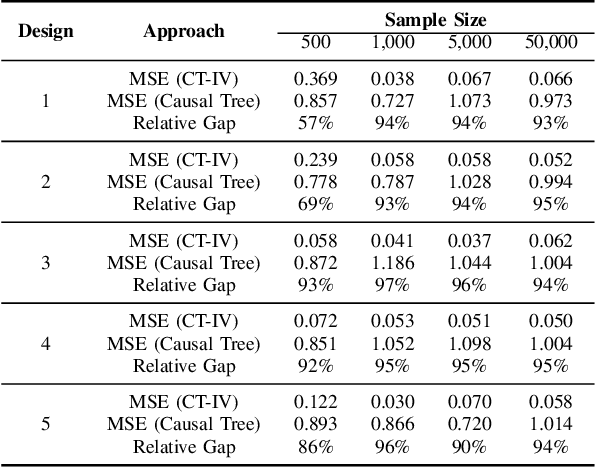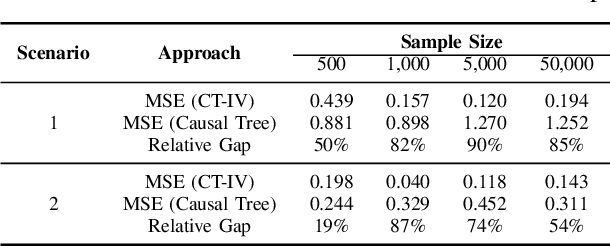Estimating Heterogeneous Causal Effects in the Presence of Irregular Assignment Mechanisms
Paper and Code
Aug 13, 2018



This paper provides a link between causal inference and machine learning techniques - specifically, Classification and Regression Trees (CART) - in observational studies where the receipt of the treatment is not randomized, but the assignment to the treatment can be assumed to be randomized (irregular assignment mechanism). The paper contributes to the growing applied machine learning literature on causal inference, by proposing a modified version of the Causal Tree (CT) algorithm to draw causal inference from an irregular assignment mechanism. The proposed method is developed by merging the CT approach with the instrumental variable framework to causal inference, hence the name Causal Tree with Instrumental Variable (CT-IV). As compared to CT, the main strength of CT-IV is that it can deal more efficiently with the heterogeneity of causal effects, as demonstrated by a series of numerical results obtained on synthetic data. Then, the proposed algorithm is used to evaluate a public policy implemented by the Tuscan Regional Administration (Italy), which aimed at easing the access to credit for small firms. In this context, CT-IV breaks fresh ground for target-based policies, identifying interesting heterogeneous causal effects.
 Add to Chrome
Add to Chrome Add to Firefox
Add to Firefox Add to Edge
Add to Edge